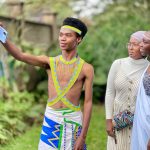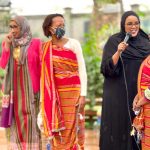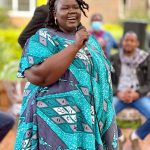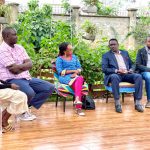The Chaloka Beyani International Refugee Law Moot Court
EACFMD is the custodian of the Chaloka Beyani International Refugee Law Moot Court Competition. EACFMD conceptualised the Chaloka Beyani International Refugee Law Moot Court Competition as an advocacy platform for law students to engage critically with contemporary refugee law issues.
The moot is named after Dr. Chaloka Beyani who was appointed as the Special Rapporteur on the Human Rights of Internally Displaced Persons by the Human Rights Council in September 2010 and exercised his functions from November 2010 until October 2016. It seeks to honour his dedication and inspire the next generation of refugee & forced migration practitioners, policymakers and humanitarians.
Dr. Chaloka was appointed by the African Union to draft & negotiate The African Union Convention for the Protection and Assistance of Internally Displaced Persons in Africa (the Kampala Convention) which was adopted by the African Union on 23rd October 2009 in Kampala, Uganda.
The best overall oralist will be awarded the George Okoth-Obbo Award & internship with EACFMD. The award is named after George Okoth-Obbo, former UNHCR Assistant High Commissioner for Refugees as well as Assistant Secretary-General and Secretary and Head of the Secretariat of the United Nations Secretary-General’s High-Level Panel on Internal Displacement.
2025 Thematic Focus: Refugee right to work and access to decent jobs.
Thanks to generous support from the Heinrich Böll Stiftung Foundation, the 2025 inaugural edition of the moot will be held at Strathmore University in November 12-14. Through simulated legal proceedings before a hypothetical tribunal, moot participants will grapple with complex legal questions surrounding the right to work access to decent jobs and social protection of refugees among others.
Participants will interrogate and apply state obligations under international and regional refugee law frameworks. The competition will challenge students to apply legal principles to real-world scenarios, offering them an opportunity to deepen their understanding of international refugee protection mechanisms and contribute to the development of progressive legal interpretations.











